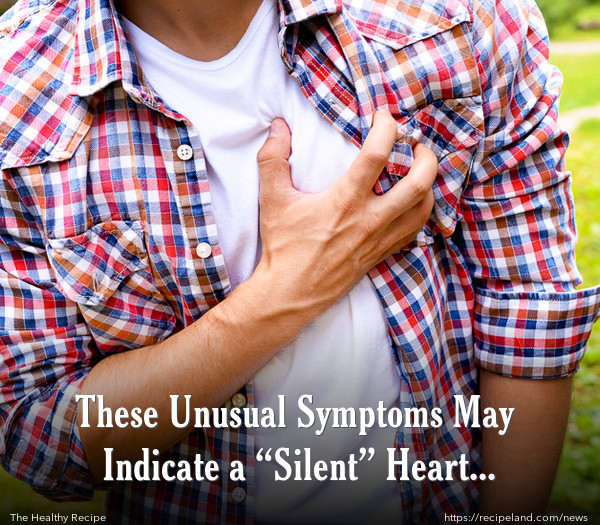New research from the National Institutes of Health (NIH) reveals several symptoms of heart attacks that may be easy to ignore. These “silent” symptoms can cause serious damage to the heart tissue and should not be ignored. Researchers followed more than 1,800 people over the age of 45 who did not have any heart disease. They performed initial testing and then scanned their hearts 10 years later. Results showed that 8% of the subjects showed some evidence of tissue damage or scarring on their hearts. What this means is that these people may have experienced a heart attack, without ever even knowing it. This is probably because their symptoms were not the typical symptoms one would expect to see with a heart attack.
Dr. David Bluemke, M.D., Ph.D., a study author and the director of radiology and imaging sciences at the NIH Clinical Centre, stated, “In some cases, patients have symptoms that they feel are not bad enough to go to a doctor.” These symptoms may include nausea, vomiting, mild chest pain, excessive unexplained fatigue, shortness of breath, heartburn, and some discomfort in the neck or jaw. These are vague symptoms that could possibly indicate a heart attack, but could also indicate many different mild problems, like a stomach bug, indigestion, or the flu. But when you are having even a mild heart attack, there is a risk of having scar tissue left behind on your heart.
Bluemke explained that this scarring can affect the heart’s electrical current, which can lead to arrhythmia, or unusual heart rhythms. When your heart beats too quickly, it does not efficiently pump blood. As a result, you could experience sudden cardiac arrest, which could be quite serious. This is why it is very important to be aware of your body and monitor your symptoms whenever you don’t feel quite right.
Although the risk of heart attack is very low for young, healthy people, and these symptoms may not be indicative of a heart attack, it is important to be aware of them as you age. For those over the age of 50, or over the age of 40 with a strong family history of heart disease, or for those people with risk factors of obesity, high blood pressure, diabetes, or smoking, then these symptoms should be promptly addressed if they last more than 20 minutes. It could be dangerous to wait and see if they go away on their own.
Getting an annual physical is also important. Unrecognized heart attacks are not the only threat to your heart health—problems like high blood pressure, diabetes, obesity, and smoking can also cause damage to the heart.
Studies have shown that about 70% of people with unrecognized heart disease and died of sudden heart attacks had previous scarring on their hearts that had never been detected. This is why it is critical to detect heart disease early, so that you can be properly treated and any risk factors can be controlled before they can trigger a heart attack. Tests like a CT calcium score and CT angiogram can help detect any plaque buildup that might signify early heart disease.










Comments